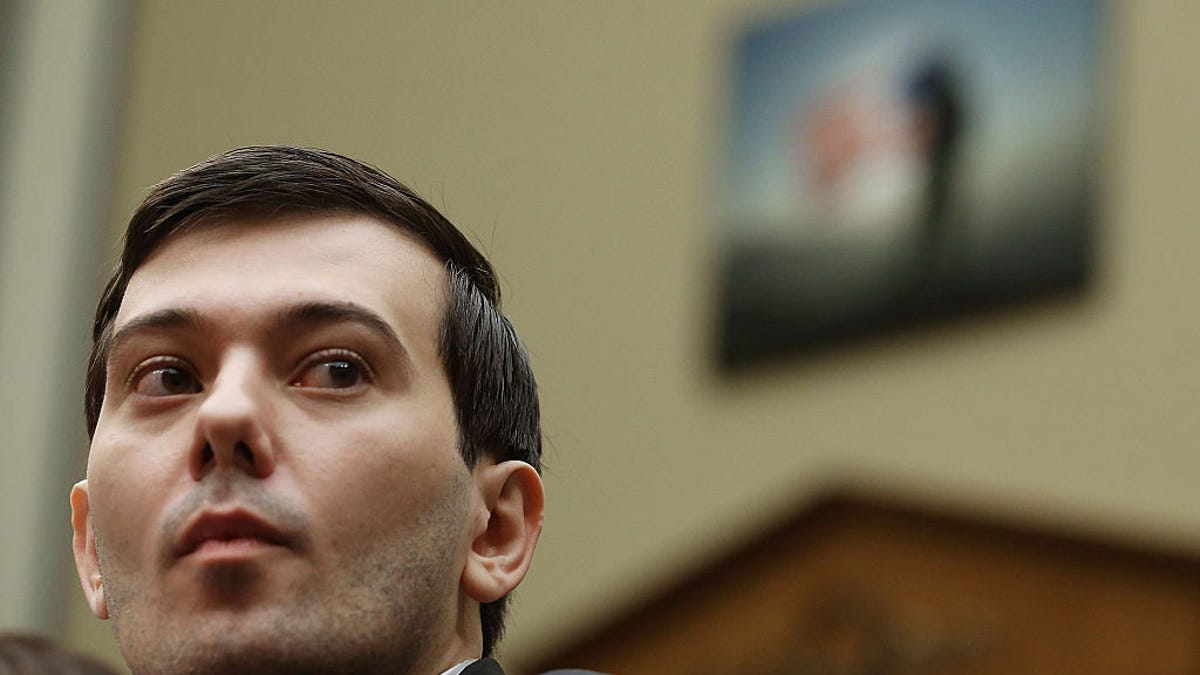Aussie students re-create Martin Shkreli's $750 HIV pill for about $20
Big Pharma just got schooled by a bunch of 17-year-olds in a school science lab in Australia.
Pharmaceutical executive Martin Shkreli won near-universal scorn in 2015 when he hiked the price of anti-malaria and anti-HIV medication Daraprim from $13.50 to $750 overnight.
But now, he may have been bested by a few Australian high school students.
A group of Year 11 students at Sydney Grammar School has managed to re-create Daraprim's key ingredient in their school lab, producing 3.7 grams of the compound Pyrimethamine. And they did it for AU$20 (about $15, £12).
Speaking to Australia's ABC news, Sydney Grammar student Milan Leonard said he and his classmates worked on the project to highlight the "ridiculous" price of the drug, which costs AU$13 for a bottle of 50 tablets in Australia.
Daraprim came to the world's attention when Turing Pharmaceuticals, headed up by then CEO Shkreli, acquired the rights to sell the medication, before hiking prices by 5,000 percent. Since then, Shkreli has courted controversy in the sci-tech scene, offering to buy out the embattled 4chan and refusing to release music from a Wu-Tang album, the lone copy of which he owned, unless Donald Trump was elected president.
The Sydney Grammar students did their work with the help of Open Source Malaria, a project supported by the University of Sydney and the Australian government, dedicated to finding a cure for malaria "guided by open source principles."
One of the students on the team, Brandon Lee, described the feeling of making the final discovery.
"At first there was definitely disbelief," Lee told the ABC. "We spent so long and there were so many obstacles... it surprised us, like, 'Oh, we actually made this material' and 'This can actually help people out there'.
"So it was definitely disbelief but then it turned into happiness as we realised we finally got to our main goal."
So what's it like to beat Big Pharma at their own game? To use an Aussie phrase, student Milan Leonard was pretty stoked.
"It was ecstatic, it was bliss, it was euphoric," he said.
Martin Shkreli later responded to the news, releasing a short video statement about the students along with a flurry of tweets.
"I'm delighted to hear about more and more students entering the STEM field," he said in the video, posted on YouTube. "These Australian students are the proof that the 21st-century economy will solve problems of human suffering through science and technology."
His tweets were more direct.
"Learning synthesis isn't innovation," he wrote in one tweet.
"And never, ever compare your cook game to mine. Highest yield, best purity, most scale. I have the synthesis game on lock," he later added.
CNET contacted Sydney Grammar for comment, but the students were at their end of year Speech Day.
First published December 1, 2:24 p.m. AEDT.
Update, 5:05 p.m. AEDT: Added comments from Martin Shkreli.


